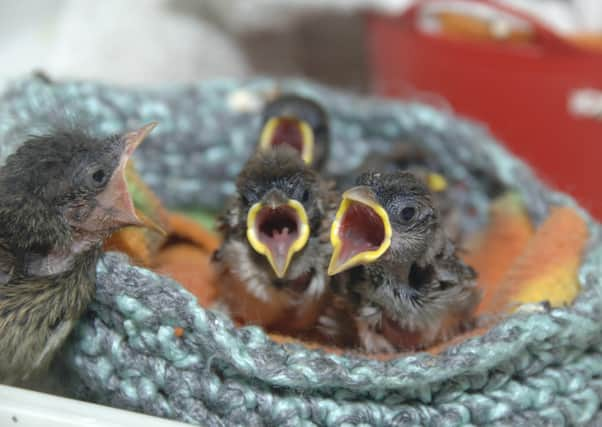SSPCA asks readers to be #WildlifeWise this spring


In many cases though, the wild animals, particularly if they are young, do not actually need assistance.
So the Society, which is continuing to attend urgent rescues and investigate reports of animals in need across Scotland despite coronavirus, has launched its #WildlifeWise campaign.
Advertisement
Hide AdAdvertisement
Hide AdIt aims to get people who come across baby animals to refrain from disturbing them.
Instead, the SSPCA wants people to observe the animal from a distance and, if there is no clear sign of injury or distress, return in a few hours to see if it is still there.
Last year, the Society’s animal helpline took over 10,000 calls about baby birds and almost 3000 about foxes.
It answered 200,000 calls in total in 2019 and more than 11,000 animals were admitted to the National Wildlife Rescue Centre at Fishcross.
Advertisement
Hide AdAdvertisement
Hide AdSteven Gray, wildlife manager for the SSPCA, said: “The majority of reports we get relate to wildlife. Last year, we had over 3000 birds and 50 fox cubs in our wildlife centre.
“Many fox cubs, baby birds and young fawns will be left by their mother for several hours at a time.
“Sometimes, people come across these baby animals and disturb or move them because they think they need help.
“This can cause great distress to a parent if it returns to find its young are gone, and inadvertently creates a welfare issue, meaning the animal has to be taken to our wildlife centre until it is old enough to survive in the wild.
Advertisement
Hide AdAdvertisement
Hide Ad“Raising wildlife is immensely rewarding, but an animal growing up in their natural habitat with a parent is even better.
“If we can limit the number of animals coming in when there is no welfare issue, it frees up our experts to spend more time rehabilitating animals in genuine need.
“Don’t disturb any wildlife until you have had a look on the SSPCA website and, if possible, spoken to our animal helpline. Our message is simple: don’t risk creating an orphan and be wildlife wise.”
The animal helpline is open from 7am to 9pm every day. To find out more, visit www.scottishspca.org/wildlifewise.